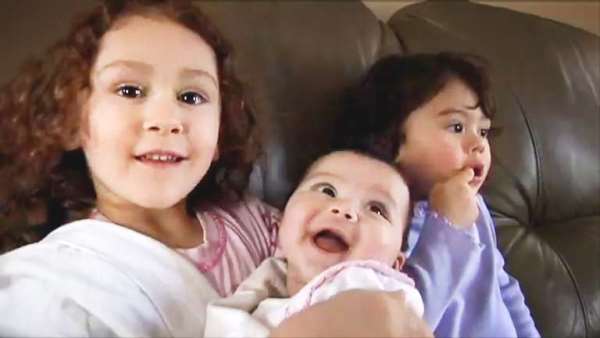![]() This intimate documentary centers on the family of Cindy Shank, a young mother of three sentenced to 15 years in prison. From the very first scene, in which her husband and daughters eagerly gather around a phone to speak to her, it is clear just how much they miss her physical presence. Her younger brother, Rudy Valdez, directs the film with an unsurprisingly sympathetic point of view, painting Shank as someone who could have been their family’s first college graduate, if not for a tragic twist of fate.
This intimate documentary centers on the family of Cindy Shank, a young mother of three sentenced to 15 years in prison. From the very first scene, in which her husband and daughters eagerly gather around a phone to speak to her, it is clear just how much they miss her physical presence. Her younger brother, Rudy Valdez, directs the film with an unsurprisingly sympathetic point of view, painting Shank as someone who could have been their family’s first college graduate, if not for a tragic twist of fate.
Years before she went to prison, Shank became romantically involved with a man who eventually turned to dealing drugs. After he was murdered, she was charged as an accessory even though she did not engage in any criminal activities herself. The state of Michigan eventually dropped the case, and Shank, having received a second chance, became a productive citizen. She got married to a different man, Adam, with whom she had her little girls, the youngest of whom was an infant when the FBI came knocking on the door one morning.
Federal prosecutors convicted Shank for the drugs and guns that were in her ex’s possession, and under the mandatory minimum sentencing guidelines in place, she received 15 years. It was an absolutely crushing moment, as recalled by Adam. Her trial took place in 2008, and the film includes home video taken by Valdez over the next eight years so that Shank would not miss seeing her daughters grow up.
The first half shows family members doing whatever they can to ensure Shank doesn’t lose touch with them. Adam makes sure each child talks to her whenever she is able to call, even if she’s too little to understand and is therefore resistant. He also regularly packs everyone up into his van for long road trips to the prison, where it appears they only get to meet with Shank for a few hours. Besides Adam and the girls, the grandparents make their own sacrifices, too—Rudy and Cindy’s father salvages scrap metal for extra money, which helps to pay for her calls from prison.
Throughout, the various subjects have trouble maintaining their composure as the camera is rolling, and that includes Valdez, who admits that filming allows him a necessary emotional distance. Yet as he follows around family members, interviewing them about their feelings regarding Shank, he often becomes as overwhelmed as they do. Sometimes he offers comforting words to them, while at others he turns the camera away, as if seeing them this way is more than he can bear.
By pointing out the various strains that family members are under, the film puts a human face on the problem of minimum sentencing guidelines, which ultimately decided Shank’s fate. Various legal experts point to them as excessively harsh and contributing to prison overpopulation, but unfortunately, there is no political will to fix the problem. Valdez, for his part, tries to embrace his new role as an activist, leading to some of the more rousing moments of the film.
The Sentence undeniably has a belly full of political fire, but what also makes it engrossing is watching Shank’s three daughters grow up before the camera. They don’t just get taller, they develop individual personalities, which respond to their mother’s situation differently. The oldest daughter, Autumn, becomes more serious and downright world-weary over time, while Ava, the middle daughter, never seems to take anything too seriously, which we start to suspect is a coping mechanism.
The film makes a smart decision to feature Shank in the flesh as little as possible, which might have simply been the result of not being able to film inside a federal prison. Yet even though she is only a disembodied voice for most of her scenes with family members, enough of her personality comes across. Valdez keeps Shank at a distance, although at one point, he brings the camera tantalizingly close, glimpsing her as a shadowy figure on the far side of a yard.
The legal process involving appeals is only lightly touched upon, but the film ramps up as Valdez pursues a last-ditch attempt to get President Obama to pardon her. But no matter how that turns out, we never lose sight of the fact that Shank already lost years of her life, including invaluable moments with her children, which even Valdez’s constant filming cannot replace. As a depiction of how a family overcomes a most unimaginable crisis, The Sentence is triumphant. As a call for criminal justice reform, it is powerful and convincing.







Leave A Comment